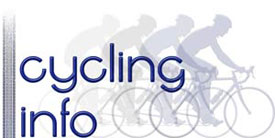Graeme Obree has always been one of my favourite riders. I admire many things about him. But, with the revelations of the extent of doping in cycling in the 1990s, you have to respect him even more. As Obree says of the drug culture in the sport at the time.
“First time I go to meet the Groupement team, I’m in Belgium and a fellow rider is saying ‘Hey, what [drugs] did you use for the hour record?’ And I’m like, ‘Nothing’. And he’s looking me up and down. The guy had no respect for me. It was an Italian guy. ‘What did you use’, he says again. ‘Nothing’. And he goes ‘Amatore’. Amateur. I’ll never forget that. He turned on his heels and walked away in disgust,”
Obree said. “I think these people truly believed that I was being unprofessional by refusing to sign up to the drugs programme. They thought it was proper to take drugs otherwise you weren’t taking the sport seriously. Because I wasn’t taking the drugs, to them, I was an amateur.

Obree spoke out against doping in an interview with L’Equipe in 1996, claiming 99% of elite riders at the time were taking drugs. The then UCI president, H. Verbruggen responded by calling Obree a coward. Obree said that riders also turned against him and suggests that Verbruggen did nothing to unearth the doping problem
“After I did that thing with L’Equipe it was difficult to go to a professional race because of the animosity from other riders. I was almost scared to [use] the changing room in case I’d get beaten up. There was real tension,” he recalled.
“I remember reading Kimmage’s book [Rough Ride, published in 1990] and there was lots of stuff about the problem of drugs in cycling in that book and I thought ‘It can’t be that bad, surely’. But it was. It was a Pandora’s box. If Verbruggen (then the UCI president) opened it, there would have been nothing left in the sport, so he kept it closed.”
In the end it was a tragic outcome for a great of the sport.
“I knew that me pushing myself to the limit of my ability wasn’t going to be enough to beat these guys. Once you realise you’re at a physical disadvantage you can’t really do the sport any-more. So, road racing was over and the UCI had banned my riding positions on the track, so it was like ‘Jings, crivvens, help ma Boab, what do I do now? I know, I’ll go away and be depressed for ten years’.”
But, it’s great to hear Obree coming back from personal difficulties, with a renewed zest for life. Obree describes his new landspeed record as:
“part sport, part artistic impression, part not knowing how the hell it’s going to end and being thrilled by the mystery. It’s simple and it’s pure and it’s a world away from what we’re now talking about – the state of road cycling.”
“My biggest fear is not crashing this bike at 85mph and losing my skin – it’s sitting in a chair at 90 and thinking ‘I wish I’d done more’,” Obree said.
In an era of soundbite cyclists, you can always rely on Obree to say something interesting and thought-provoking. His final thoughts on the UCI
“The problem we have is that it’s not a democratic organisation, it’s autocratic, it’s almost an old boy’s network. A chum-ocracy.”
Related
- Obree calls the UCI a ‘Chumocracy’ at Cycling News
- Graeme Obree

Graeme Obree is such a legend.